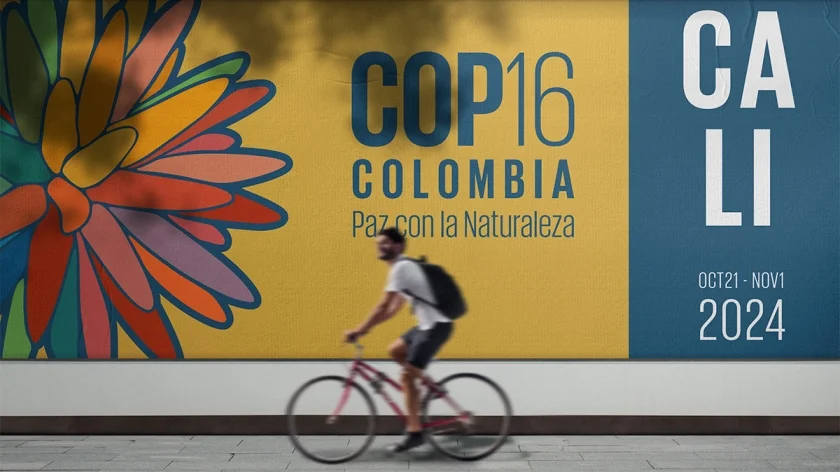
Delegates of the 196 Parties to the Convention on Biological Diversity (CBD) and observer organizations start today a nine-day meeting to review and explore opportunities to advance the implementation of the Kunming-Montreal Global Biodiversity Framework (KMGBF) for the first time since its adoption by the world community at COP 15.
The fourth meeting of the Subsidiary Body on Implementation (SBI 4) of the CBD, which is taking place from 21-29 May at the United Nations Office in Nairobi, will see a decisive round of negotiations to strengthen the implementation of the KMGBF.
Branded as “The Biodiversity Plan” to encourage its uptake by the public at large, the KMGBF is the world’s master plan to halt and reverse biodiversity loss by 2030. It encompasses 23 action targets and four overarching goals that, if implemented, will take the world closer to living in harmony with nature.
Chirra Achalender Reddy of India, Chair of SBI, said: “Delegates will come together at SBI 4 in Nairobi to further develop mechanisms to support the implementation of the Biodiversity Plan, through finance, capacity building and cooperation among countries and organizations, and to monitor and review progress in implementation.”
Participants in SBI 4 will review progress in the alignment of the National Biodiversity Strategies and Actions Plans (NBSAPs)—key planning tools used by the Parties as part of their obligations under the CBD—with the 23 action targets of the Biodiversity Plan. Representatives of indigenous peoples and local communities, youth and women groups as well as other stakeholders will also take part.
“The challenge is to ensure that the global aims of the Biodiversity Plan are translated into nationally relevant targets that consider the context and the biophysical realities of each country. There is no one-size-fits-all approach. Getting this right is crucial to the success of this global endeavour for people and nature,” said David Cooper, Acting Executive Secretary of the CBD.
In addition to agreeing on the yardsticks against which progress will be measured, the Parties will negotiate important elements of the means of implementation: resource mobilization, capacity-building and technical and scientific cooperation. They will also pursue adequate ways to consider and leverage the mosaic of national contexts and the spectrum of capacities for the full implementation of the Biodiversity Plan.
The Advisory Committee on Resource Mobilization, established by the Parties, is working on strategies and recommendations on how to progressively close the biodiversity finance gap of $ 700 billion US per year (Goal D of the Biodiversity Plan). The work of the Committee will be discussed at SBI 4, including how all countries can develop and implement national biodiversity finance plans or similar instruments, by national priorities, capacities and circumstances.
Developed country Parties are expected to provide new, additional and adequate financial resources to developing country Parties. The agenda item on finance will receive heightened attention as the deadline to mobilize US$ 20 billion per year by 2025 through international financial flow approaches. The Parties will consider a range of options for advancing biodiversity finance in line with Articles 20 and 21 of the CBD. That could include a new dedicated fund as well as bolstering existing mechanisms, including the Global Environmental Facility (GEF).
Resources mobilized through GEF for biodiversity in the latest replenishment (GEF-8) are the largest yet. The newly launched GEF Global Biodiversity Framework Fund has recently approved the first set of project preparation grants. The outcomes of SBI4, particularly those about the assessment of funding needs and related guidance, will feed into the negotiations on the next replenishment (GEF-9) by the Facility’s member countries.
Other items on the SBI 4 agenda pertain to Communication, Education and Public Awareness (CEPA), cooperation with other conventions and international organizations and the assessment and review of the effectiveness of the Nagoya Protocol, which concerns access to genetic resources and the fair and equitable sharing of benefits arising from their utilization.
The negotiations will build on the constructive momentum of environmental multilateralism that the 26th Meeting of the Subsidiary Body on Scientific, Technical and Technological Advice (SBSTTA 26), which closed 48 hours before SBI went underway, has generated.
As a subsidiary body, SBI advises the Conference of the Parties, the supreme governing body of the CBD, which will hold its 16th meeting from 21 October – 1 November 2024 in Cali, Colombia. The outcomes of SBI 4 will be instrumental in achieving progress towards fulfilling the promise of the Biodiversity Plan and the 2050 vision for biodiversity adopted under the CBD.








